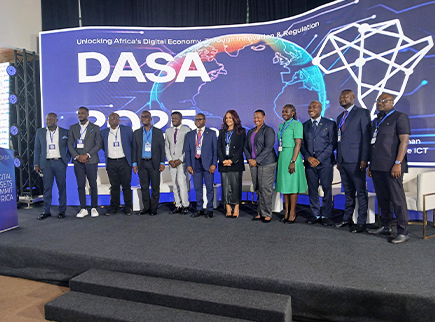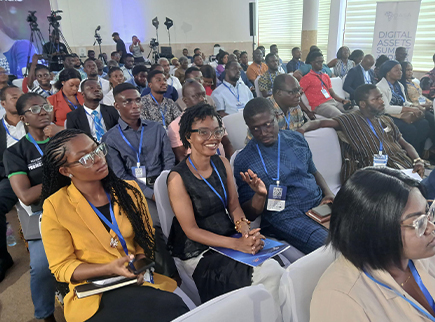Professor Tonya M. Evans, Board Director, Digital Currency Group and Fintech Strategist, has called on financial institutions to partner with Fintech companies and experiment with blockchain technologies for improved cross border payments and trade.
She also advised them not to see digital assets as a threat to traditional banking but as an opportunity to serve customers better.
Prof. Evans gave the advice at the Digital Assets Summit Africa (DASA) 2025 in Accra.
The summit was on the theme: “Unlocking Africa’s Digital Economy Through Innovation and Regulation”.
Digital assets are items created and stored in a digital form that hold value and can be owned, transferred and traded.
Examples are images, audio files, and blockchain-based assets like Bitcoin., virtual currencies, stablecoins, and non-fungible tokens.
Prof. Evans also called on policy makers to embrace evidence-based regulation and study what worked in other contexts in designing their own rules on digital assets.
For Ghana to lead the charge and take advantage of the global assets, she asked that her entrepreneurs built solutions that solved real African problems, designed for constraints while leading.
Prof. Evans said digital assets could unlock smart-contract settlement and transparent supply chains in agriculture and ensure safe stores of value and instant cross-border payments.

It could also ensure programmable cash transfers and gains and continental settlement in minutes in trade.
To face risks head-on in the digital assets world, she advised that government ensured wallet protection, key management, and cyber resilience, and be wary of regulatory uncertainty, adding that clarity enabled trust and investment.
Prof. Evans also advised on monetary sovereignty and asked that people avoided over-reliance on foreign private money.
“The future is being written now, let Ghana hold the pen,” she added.
Professor Samuel Kobina Annim, Director of African Centre for Statistics, on the topic: “Rethinking Data, Statistics and Economic Transformation in a Rapidly Changing Technological World”, said it was prudent to think about things by conceptualising how they were to be done and how AI could be employed to help in that regard.
He said technology was crucial in helping to know what to measure and what not to measure.
“Statistics should be the basis of policy design and statisticians shouldn’t only use data to assess how a government is faring. Data can be used well for the trade offs of a policy decision and design of a government,” he said.
Prof. Annim, formerly Government Statistician, advised that the nation saw the relevance of data and statistics by employing it into policy and evaluation.
Mr Robert Dzato, the Chief Executive Officer, Chattered Institute of Bankers, Ghana, said a number of things were shifting including demographics where young people were trusting in something other than the bank.
He said Africa needed to join the digital space that brought big opportunities to a country’s economy.
The financial sector, he said, was built around trust which emerged from character, and competence, conduct from regulation, and consequence especially on what happened to someone who duped another in an investment.
Ms Mimi Kufuor, the Chief Executive Officer, Koinkoin Ghana Limited, advised that Africa understood and focused on its demographics and the needs of people, inflation, and stable coins.
She also suggested that the continent became interoperable for trade, adding that with Africa’s changing climate and political atmosphere, stablecoins and other digital assets could help.
Speaking on the risks associated with digital assets, she said: “Bitcoin is risky because it is volatile and price centred. It’s a good source of value for people who do everyday transactions unlike large institutions like banks.
“Stable coin can also be used to prevent monies from going up and down in everyday transactions.”
Ms Kufuor urged the nation and her citizens to understand the market movements, tax implications in digital assets in order not to invest blindly.
Mr Todor Kostov, a Corporate Finance Constant and Board Advisor, advised that Africa focused first on innovation in the digital assets world before considering regulation.
He said there were many crypto currency options and advised Africa to take advantage of the space.

